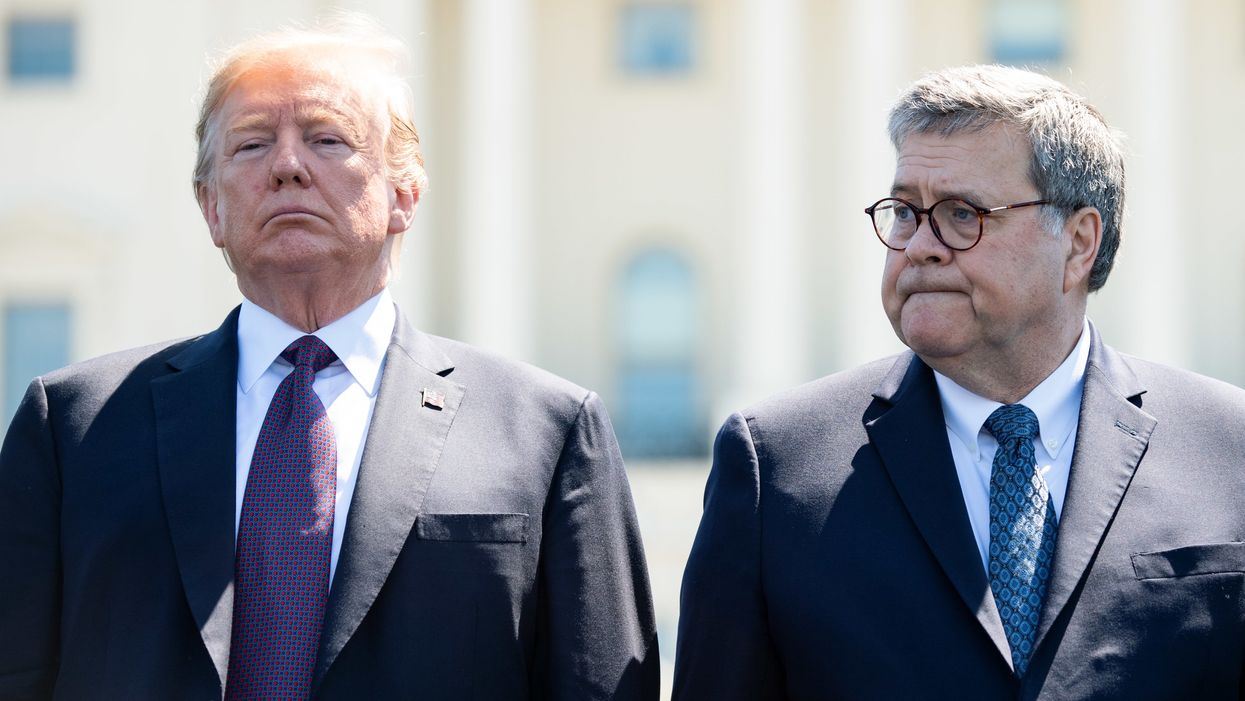
Kevin Dietsch/Pool via Bloomberg

He called the use of these injunctions 'troubling'
In a speech on Tuesday to the American Law Institute, U.S. Attorney General William Barr criticized the ability of lower courts to impose nationwide injunctions against presidential decisions.
Barr spoke about the Trump administration's attempt to undo the Obama-era Deferred Action for Childhood Arrivals program, which had granted protected status to illegal immigrants who were brought into the United States as children. District Court judges in California and New York blocked this attempt with nationwide injunctions.
Instances like this, Barr argued, highlighted "a number of troubling consequences of the rise of nationwide injunctions."
"[T]hese nationwide injunctions have frustrated presidential policy for most of the President's term with no clear end in sight," Barr said. "We are more than halfway through the President's term, and the Administration has not been able to rescind the signature immigration initiative of the last Administration, even though it rests entirely on executive discretion."
He also said that the injunctions "have injected the courts into the political process." He noted that President Donald Trump had planned to use DACA as a part of his negotiations with congressional leaders to come up with an immigration deal. Once the courts struck down his repeal of DACA, this bargaining chip disappeared.
Barr said that these injunctions "inspire unhealthy litigation tactics" with courts in some states trying to issue injunctions against injunctions made by courts in other states.
He added that these "nationwide injunctions violate the separation of powers" and were a "departure" from "our traditional understanding of the role of courts." Opponents of a law could go to any of the country's 600 district judges who could "in effect, cancel the policy with the stroke of a pen," Barr said.